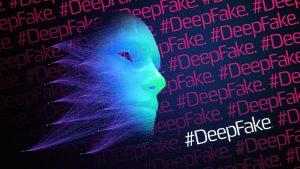
source: blog.hubspot.com, contributed by FAN, Steve Jones. | image: pixabay.com
I’ll never forget the first time dining at a restaurant after my pandemic-induced hibernation. Before I could ask for a menu, the waitress nodded towards a piece of paper with a barcode on it. “Open your phone camera and scan it. The menu should pop up.”
QR codes have become a common sight almost overnight — from cereal boxes and billboards to even employee uniforms. With a 94% increase in interactions from 2018 to 2020, there’s no denying QR codes are seeing an epic revival in a new touch-free world.
Let’s explore the origins of the QR code, learn how it works, and discuss ways it can refresh your marketing strategy.
What is a QR code?
Short for quick response, QR codes are scannable barcodes that store data. In the marketing sphere, they’re commonly used to redirect users to landing pages, websites, social media profiles, or store coupons.
For instance, someone can place a QR code on the back of their business card to direct you to their LinkedIn profile. A QR code on a billboard may send you to a landing page.
QR codes vary in design and function, and primarily fall into one of the following categories — static or dynamic.
Static vs. Dynamic QR Codes
A static QR code contains information that cannot be modified once it’s live. This means any typo or misstep will require you to create a brand new one. The good news is that static codes don’t expire — so once the content is set, your work is done.
Static QR codes are ideal for storing fixed or sensitive info — think Wi-Fi passwords, employee ID numbers, or access codes. But they’re not so helpful if you need to update your data regularly.
Dynamic QR codes allow you to change your info as many times as you want. This is because the information isn’t ingrained into the code itself. Instead, it redirects users to a specific URL that can be changed at any time. For example, a restaurant can redirect users to a menu on their website.
A major benefit of dynamic QR codes is the ability to gather scanning metrics. While you can’t access personal information from users, you can see the time, location, and device used for each scan. And as marketers, we know these metrics are crucial to gauging campaign effectiveness.
How do QR codes work?
A QR code works similarly to barcodes at the supermarket. Each QR code consists black squares and dots which represent different pieces of information. When scanned, the unique pattern on the barcode translates into human-readable data. This transaction happens in seconds.
Users must scan the code with a QR reader or scanner, although nowadays most people scan QR codes with smartphones. On the off chance your phone doesn’t have the capability, there are plenty of free apps for QR scanning like NeoReader and QuickMark Barcode Scanner.







 source: wsj.com, contributed by Artemus Founder, Bob Wallace | image: pexels.com
source: wsj.com, contributed by Artemus Founder, Bob Wallace | image: pexels.com

